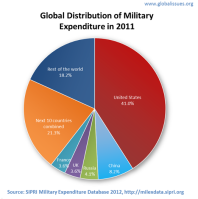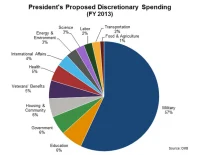Historian Richard Hofstadter gave us the best definition of the term:
Anti-intellectualism is a resentment and suspicion of the life of the mind and of those who are considered to represent it, and a disposition constantly to minimize the value of that life.
Author Susan Jacoby maintains that, due to a re-invigoration of anti-intellectualism in this country, Americans have been getting dumber over the last several decades. She argues that Americans have grown increasingly passive and uninformed amid a video-driven culture that prizes “infotainment,” celebrates ignorance, and devalues critical thinking. The net result, she says, is a “crisis of memory and knowledge” that poses a serious threat to the two pillars of American intellectual life, reading and conversation, and carries very real consequences, such as the war in Iraq.
First and foremost among the forces behind the new anti-intellectualism is electronic media. The major casualties of our current media-saturated life are three things essential to the vocation of an intellectual: silence, solitary thinking, and social conversation. For example, the decline of book, newspaper, and magazine reading is by now an old story.
- Reading has declined not only among the poorly educated, according to a report in 2004 by the National Endowment for the Arts, but among Americans of all ages and education levels. In 1982, 82 percent of college graduates read novels or poems for pleasure; two decades later, only 67 percent did. And more than 40 percent of Americans under 44 did not read a single book — fiction or nonfiction — over the course of a year. The proportion of 17-year-olds who read nothing (unless required to do so for school) more than doubled between 1984 and 2004. And what do Americans read when they do read? Here’s a hint: you can find multiple magazine racks like this at almost any supermarket.
- The time period between 1984 and 2004, of course, encompasses the rise of personal computers, Web surfing, and video games. In a study released last August, University of Washington researchers found that babies between 8 and 16 months recognized an average of six to eight fewer words for every hour spent watching videos.
- The inability to concentrate for long periods of time and the impatience with the process of acquiring information through written language may be a consequence of the rise of video. After all, it is difficult to spend more than a few moments before being distracted while reading hits for information on the Web. In support of this assertion, Harvard University’s Kiku Adatto found that between 1968 and 1988, the average sound bite on the news for a presidential candidate — featuring the candidate’s own voice — dropped from 42.3 seconds to 9.8 seconds. By 2000, according to another Harvard study, the daily candidate bite was down to just 7.8 seconds.
The shrinking public attention span fostered by video is closely tied to an important symptom of anti-intellectualism in American culture: the erosion of general knowledge.
- According to a national survey commissioned by the California Academy of Sciences and conducted by Harris Interactive, only 53% of adults know how long it takes for the Earth to revolve around the Sun; only 59% of adults know that the earliest humans and dinosaurs did not live at the same time; and only 47% of adults can roughly approximate the percent of the Earth’s surface that is covered with water. Furthermore, only 21% of adults answered all three questions correctly.
- According to a survey by the Intercollegiate Studies Institute (ISI), fewer than half of all Americans can name all three branches of government, a minimal requirement for understanding America’s constitutional system, and almost 40% of Americans falsely believe the president has the power to declare war. Only 24% of college graduates know the First Amendment prohibits establishing an official religion for the United States and only 54% can correctly identify a basic description of the free enterprise system, in which all Americans participate.
- In addition, the ISI survey reveals that elected officials typically have less civic knowledge than the general public — for example, 30% do not know that “life, liberty, and the pursuit of happiness” are the inalienable rights referred to in the Declaration of Independence.
- Interestingly, ISI examined whether other factors add to or subtract from civic literacy and how they compare with the impact of college. The survey revealed that in today’s technological age, all else remaining equal, a person’s test score drops in proportion to the time he or she spends using certain types of passive electronic media. Talking on the phone, watching owned or rented movies, and monitoring TV news broadcasts and documentaries diminish a respondent’s civic literacy. In contrast to these negative influences, the civic knowledge gained from the inexpensive combination of engaging in frequent conversations about public affairs, reading about current events and history, and participating in more involved civic activities is greater than the gain from an expensive bachelor’s degree alone.
That leads us to another force behind the new anti-intellectualism: not lack of knowledge per se but arrogance about that lack of knowledge. The problem is not just the things we do not know — it’s the alarming number of Americans who have smugly concluded that they do not need to know such things in the first place. Americans go to websites and attend lectures only when they want to hear information that reinforces what they already (think they) know. Only a small minority of people are any longer willing to learn from people with whom they disagree. There is little motivation to learn. Call this anti-rationalism, often exhibited by certain religious groups that reject Reason and embrace Faith as the only way to knowledge. This current of anti-intellectualism is actually not new — for example, it was famously expressed in The Pouring Out of the Seven Vials (1642) by the Puritan John Cotton, who wrote:
The more learned and witty you bee, the more fit to act for Satan will you bee.
Another source of anti-rationalism is a narrow, utilitarian focus on jobs and career as the ultimate goal of learning – for example, this was famously expressed by Henry Ford in 1916, who said:
History is more or less bunk. It’s tradition. We don’t want tradition. We want to live in the present, and the only history that is worth a tinker’s damn is the history we make today.
According to a 2006 survey by National Geographic-Roper, nearly half of Americans between ages 18 and 24 do not think it necessary to know the location of other countries in which important news is being made. More than a third consider it “not at all important” to know a foreign language, and only 14 percent consider it “very important.” So, why is it important to know about humans living in different places and in different ways? Because we are part of a massive global economy where our local actions, in the aggregate, have massive global consequences.
References:
- Thomas H. Benton, “On Stupidity,” The Chronicle of Higher Education (1 Aug 2008).
- California Academy of Sciences, “American Adults Flunk Basic Science: National Survey Shows only One-in-Five Adults Can Answer Three Science Questions Correctly,” dated 25 Feb 2009, accessed 20 Nov 2009.
- Nicholas Carr, “Is Google Making Us Stoopid?” The Atlantic (July/August 2008).
- Richard Hofstadter, Anti-Intellectualism in American Life (Knopf: 1963).
- Intercollegiate Studies Institute American Civic Literacy Program, “Our Fading Heritage: Americans Fail a Basic Test on Their History and Institutions,” updated 20 Feb 2009, accessed 20 Nov 2009.
- Susan Jacoby, “The Dumbing of America: Call Me a Snob, but Really, We’re a Nation of Dunces,” The Washington Post (17 Feb 2008) p. B01.
- National Endowment for the Arts, “Literary Reading in Dramatic Decline, According to National Endowment for the Arts Survey,” dated 8 July 2004, accessed 22 Nov 2009.
- National Geographic Society, “Young Americans Still Lack Basic Global Knowledge, National Geographic-Roper Survey Shows,” dated 2 May 2006, accessed 20 Nov 2009.

























You must be logged in to post a comment.